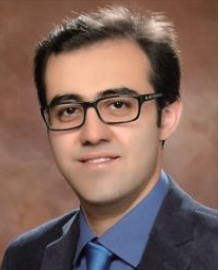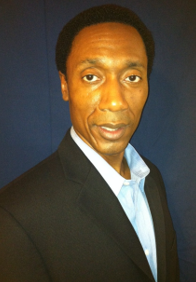We have accepted nine (9) tutorial proposals.
The conference will offer five (5) tutorials on Sunday afternoon and four (4) tutorials on Wednesday morning.
- Computing and Engineering education training (Witold Kinsner – and Rossitza Marinova ) – Sunday
- Emerging Communication technologies for the internet of things (Waleed Ejaz) – Wednesday
- WECC/NERC Generator performance testing and modeling, mod 25, 26, 27 compliances (Ali Moshref) – Wednesday
- Advanced Alarm Management Techniques (Wenkai Hu, Fan Yang, Bhushan Gopaluni, Tongwen Chen) – Sunday
- Space radiation effects and CubSat: environment, effects, design, analysis and test techniques (David Hiemstra, Li Chen) – Wednesday
- Design Methodology and Circuit Techniques for Any-Load Stable LDO Regulators with Instant Load Control (Igor Filanovsky) – Sunday
- IEEE Standards Association (Lloyd Green) – Sunday
- Microgrids (Ryan Li) – Wednesday
- Apocalypse or utopia? Building engineering capacity to maximize the positive impacts of technology (Mark Abbott, Arlene Williams) – Sunday
Conference attendees who paid for full conference registration can attend any tutorial free of charge.
Full conference registration is not required to attend the tutorials; however, those who are not registering for the conference will need to pay a tutorial fee of $100 per tutorial.
Tutorial Title: Design Methodology and Circuit Techniques for Any-Load Stable LDO Regulators with Instant Load Control
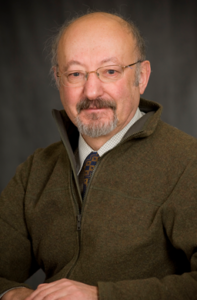
Igor M. Filanovsky (University of Alberta, Edmonton, Canada)
Vadim Ivanov (Texas Instruments, USA)
Abstract
Modern LDO regulators should have the following characteristics: any load stable, nearly instant transient response, large power supply rejection ratio and low noise. The LDOs satisfying these characteristics should be built using two-loop architecture, the loop transfer function should be of the second order, the buffer output impedance should be strongly reduced, and the pass transistor should also have a local feedback for reduction of the output impedance.
The tutorial starts by reviewing the LDOs subcircuits which contribute to improvement of the performance parameters. After that a thorough consideration is given to the LDO circuits which include the above mentioned features. The circuit techniques demonstrated during this course is proven in design of industrial LDOs.
Presenter: Igor M. Filanovsky (University of Alberta, Edmonton, Canada)
Igor M. Filanovsky is currently a Professor Emeritus at the Department of Electrical and Computer Engineering at the University of Alberta, Edmonton, Canada. His research interests include network analysis and synthesis, oscillation theory and applied microelectronics. Dr. I.M. Filanovsky published more than 200 papers on these topics in the IEEE Transactions and Conference proceedings. In addition, he is a co-author of three books: Operational Amplifier Speed and Accuracy Improvement, Kluwer, 2004, Analysis and Design of Quadrature Oscillators, Springer, 2008, and Quadrature RC-Oscillators, Springer, 2019. Dr. I.M. Filanovsky has served two terms as an Associated Editor for IEEE Transactions on Circuits and Systems Part 1. He is currently an Associated Editor of the International Journal of Circuit Theory and Applications.
Tutorial Title: Advanced Alarm Management Techniques
Organizers and Speakers:
Wenkai Hu, Fan Yang, Bhushan Gopaluni, Tongwen Chen, and Sirish L. Shah
- Wenkai Hu is with the School of Automation and Hubei Key Laboratory of Advanced Control and Intelligent Automation for Complex Systems, China University of Geosciences, Wuhan 430074, China
- Fan Yang is with Beijing National Research Centre for Information Science and Technology (BNRist) and Department of Automation, Tsinghua University, Beijing 100084, China
- Bhushan Gopaluni is with the Chemical and Biological Engineering, University of British Columbia, Vancouver, British Columbia, Canada V6T1Z3
- Tongwen Chen is with the Department of Electrical and Computer Engineering, University of Alberta, Edmonton, Canada, T6G 1H9
- Sirish L. Shah is with the Department of Chemical and Materials Engineering, University of Alberta, Edmonton, Canada, T6G 1H9 (sirish.shah@ualberta.ca)
Outline:
Alarm systems are indispensable assets in modern industrial facilities to ensure process safety. Development of industrial distributed control systems (DCS) and availability of software alarms have made it easy to add alarms at no costs. This has caused a substantial increase in the number of configured alarms. Consequently, plant operators receive far more alarms than they can handle, and are often overwhelmed by massive number of nuisance alarms that could often mask more serious situations, such as alarm floods. Therefore, it is of great demand to develop advanced alarm management techniques to address existing issues and improve the performance of industrial alarm systems.
The objective of this workshop is to introduce participants to ideas and solutions for improved alarm management based on seamless integration of information from process and alarm databases complemented with process connectivity information. Process-data based alarm system design aims at obtaining optimal alarm parameters for filters, deadbands, delay timers, and alarm limits, based on evaluation metrics, including the false alarm rate, missed alarm rate, and alarm detection delay. The advanced alarm analytics detect nuisance alarms and discover hidden patterns from alarm and event historian using statistical learning and data mining approaches. Historical datasets combined with process topology information make it possible to capture propagation paths of abnormalities and thus can help with root cause analysis.
The focus of this workshop is to present recent advances and new techniques of industrial alarm management. The emphasis in this workshop will be on how to conduct advanced data analytics to understand data and extract useful information that should help in designing alarm systems, finding out problems, and discovering hidden patterns. Interesting topics covered in this workshop include correlated alarms, alarm floods, alarm system design, causality inference, root cause analysis, and visualization.
Presenters:
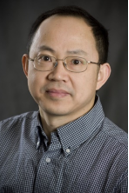
Tongwen Chen is presently a Professor and Tier 1 Canada Research Chair in Intelligent Monitoring and Control in the Department of Electrical and Computer Engineering at the University of Alberta, Edmonton, Canada. He received the B.Eng. degree in Automation and Instrumentation from Tsinghua University (Beijing) in 1984, and the M.A.Sc. and Ph.D. degrees in Electrical Engineering from the University of Toronto in 1988 and 1991, respectively. His research interests include computer and network based control systems, process safety and alarm systems, and their applications to the process and power industries. He has served as an Associate Editor for several international journals, including IEEE Transactions on Automatic Control and Automatica. He is a Fellow of IEEE, IFAC, as well as the Canadian Academy of Engineering.
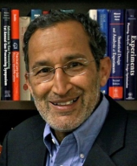
Sirish L. Shah has been with the University of Alberta since 1978, where he held the NSERC-Matrikon-Suncor-iCORE Senior Industrial Research Chair in Computer Process Control from 2000 to 2012. He is the recipient of the Albright & Wilson Americas Award of the Canadian Society for Chemical Engineering (CSChE) in 1989, the Killam Professor in 2003, the D.G. Fisher Award of the CSChE for significant contributions in the field of systems and control, the ASTECH award in 2011 and the 2015-IEEE Transition to Practice award. The main areas of his current research are process and performance monitoring, analysis and rationalization of alarm systems. He has co-authored three books, the first titled, Performance Assessment of Control Loops: Theory and Applications, a second titled Diagnosis of Process Nonlinearities and Valve Stiction: Data Driven Approaches, and a more recent monograph on Capturing Connectivity and Causality in Complex Industrial Processes. He is Emeritus Professor at the University of Alberta, a Fellow of the Canadian Academy of Engineering and the Chemical Institute of Canada.

Wenkai Hu received the B.Eng. and M.Sc. degrees in power and mechanical engineering from Wuhan University, Wuhan, Hubei, China, in 2010 and 2012, respectively, and the Ph.D. degree in Electrical and Computer Engineering from the University of Alberta in 2016. He worked as a Post-Doctoral Fellow from Oct. 2016 to Sep. 2018, and a Research Associate from Nov. 2018 to Feb. 2019 at the University of Alberta. He is currently a Professor with China University of Geosciences, Wuhan, China. He is supported by the CUG 100-Talents Program. His research interests include advanced alarm monitoring, process data analytics, and data mining for complex industrial processes.
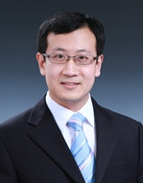
Fan Yang received the B.Eng. degree in Automation and the Ph.D. degree in Control Science and Engineering from Tsinghua University, Beijing, China, in 2002 and 2008, respectively. After working as a Postdoctoral Fellow with Tsinghua University and the University of Alberta, he joined the Department of Automation, Tsinghua University in 2011, where he is currently an Associate Professor. His research interests include topology modeling of large-scale processes, abnormal events monitoring, process hazard analysis, and smart alarm management. He was a recipient of the Young Research Paper Award from the IEEE Control Systems Society Beijing Chapter in 2006, the Outstanding Graduate Award from Tsinghua University in 2008, the Science and Technology Progress Award from the Chinese Association of Automation in 2018, and the Teaching Achievement Awards from Tsinghua University in 2012, 2014, and, 2016 and from the Chinese Association of Automation in 2016.
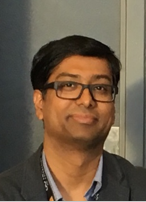
Bhushan Gopaluni is a Professor in the Department of Chemical and Biological Engineering and an Associate Dean for Education and Professional Development in the Faculty of Applied Science at the University of British Columbia. He is also an associate faculty in the Institute of Applied Mathematics, the Institute for Computing, Information and Cognitive Systems, Pulp and Paper Center and the Clean Energy Research Center. He was the Elizabeth and Leslie Gould Teaching Professor from 2014 to 2017. He is currently an associate editor for Journal of Process Control, the Journal of Franklin Institute and a guest editor for Canadian Journal of Chemical Engineering. He received a Ph.D. from the University of Alberta in 2003 and a Bachelor of Technology from the Indian Institute of Technology, Madras in 1997 both in the field of chemical engineering. From 2003 to 2005 he worked as an engineering consultant at Matrikon Inc. (now Honeywell Process Solutions) during which he designed and commissioned multivariable controllers in British Columbia’s pulp and paper industry, and implemented numerous controller performance monitoring projects in the Oil & Gas and other chemical industries. He is the recipient of several awards that include Province of Alberta Graduate Fellowship, Captain Thomas Farell Graduate Memorial Scholarship from the University of Alberta and the prestigious Killam Teaching Prize and the Dean’s service medal from the University of British Columbia.
Title: Apocalypse or utopia?: Building engineering capacity to maximize the positive impacts of technology
Synopsis:
The Facebook-Cambridge Analytical scandal, nanoparticle impacts, CRISPR babies — issues highlighting the negative consequences of technology are all over the news. Technologies have the promise to address key issues and create a better future, yet new developments often amplify inequities and create new kinds of risk. What does this mean for how to move forward?
Technological Stewardship is a new concept intended to focus attention on this issue — and start to address it. The many examples of our struggles to deal with issues connected to specific technologies points to a crucial need to build the broad capacity of all key actors in technological development to maximize the positive impacts of technology.
Through this interactive workshop, you will learn about Technological Stewardship and develop your ability to ensure technology makes the world a better place for all. After learning more about Technological Stewardship, you will engage in reflective activities that will help you envision how the positive impacts of technology can be realized, and be supported in taking meaningful action.
You will leave this 4-hour tutorial with an enhanced understanding of technology and Technological Stewardship, as well as concrete next steps on how to move forward to ensure the technology is beneficial to all.
Mark Abbott, P.Eng., MBA

Mark currently serves as the Executive Director of the Engineering Change Lab, which serves as a catalyst for evolving the engineering community to reach its full potential as stewards of technology for the benefit of humanity. Over the past 4 years, over 80 organizations and 200+ individual leaders (CEOs, VPs, Deans, Directors) have collaborated using the Lab’s platform, advancing understanding and action to evolve engineering. Previously, Mark served as a member of the Executive Team at Engineers Without Borders for several years. Before that, Mark spent fourteen years working for a heavy industrial consulting engineering firm based in Vancouver. Mark and his wife Colette live in Toronto with their 4.5 year old Felix and 2 year old Stella.
Arlene Williams, MA

Arlene is the Director of Strategic Communications and Engagement for the Engineering Change Lab, a social change lab working to catalyze culture change in the engineering community in Canada and help ensure technology is beneficial for all. She has over 20 years of experience working in the education sector, and brings a strong background in strategic action, communications, and learning facilitation. She believes that good intentions, honest conversations and vulnerability are crucial to making progress and to living a good life. Also, red wine, chocolate and poetry. She holds an undergraduate degree in English from the University of Alberta and a Master’s degree in Communication and Culture from York University/Ryerson University, is a certified leadership coach, and thinks work is fun.
Title: “Space Radiation Effects and CubeSat: Environment, Effects, Design, Analysis, and Test Techniques”
Synopsis
The tutorial will include the following items:
1) Overview of the space and terrestrial radiation environment
2) Describe the radiation effects observed in semiconductor devices
3) Provide examples of radiation effects on complex microcircuits
4) Describe modeling techniques for single event effects
5) Describe examples and results of radiation hardened by design techniques
6) Review of radiation effects test techniques
7) An overview of Canadian facilities available for radiation effects testing
The tutorial will be divided into 3 parts, the first part will introduce the space and terrestrial radiation environment, and the radiation effects in semiconductor devices. Some examples will be presented to the audience about radiation effects on complex microcircuits. The first part will be delivered by Mr. David Hiemstra, who has extensive industrial experiences in this area. The second part will discuss the approaches to model the radiation effects and some mitigation approaches. This part will be delivered by Dr. Chen. The last part will cover the radiation test techniques and overview of test facilities in Canada. This will include proton/neutron radiation facility in TRIUMF and the pulsed laser facility at University of Saskatchewan. This part will be introduced together by Mr. Hiemstra and Chen. The tutorial will take 3 hours, and will be delivered through power point slides, about 150 slides. The slides will be printed out and handed to the audience before the tutorial.
Speakers:

David Hiemstra
Senior Staff Engineer
Macdonald, Dettwiler and Associates (MDA) Co., Brampton, ON, Canada
David M. Hiemstra received his B. Eng. & Mgt. (1984) and M. Eng. (1993) degrees in Electrical and Biomedical Engineering, respectively from McMaster University. He is a Senior Member of the IEEE. David joined MacDonald, Dettwiler & Associates (MDA), formally Spar Aerospace, in 1984, where he is a Senior Staff Engineer. He is involved in radiation effects and embedded avionics hardening for space, nuclear, and military applications, systems engineering, advanced infrared and visible focal plane array technology, analog circuit design, and electromagnetic compatibility. His current area of research is Single Event Effects in commercial off-the-shelf, system on a chip, microelectronics.
David has taught space radiation effects on embedded avionics at York University and aerospace firms. He coordinated radiation effects test programs at the University of Toronto Institute for Aerospace Studies, University of Waterloo, and York University. He is currently collaborating with the University of Saskatchewan on the study of single event effects in programmable devices for space instrumentation.
David has been active with IEEE and NSREC, serving as Member-at-Large Radiation Effects Steering Group (2000-2003), Awards Committee (2002, 2005), Devices and Integrated Circuits Session Chairman (2000), Radiation Effects Data Workshop Chairman (2006), Local Arrangements Chairman (2009), voting member IEEE NPSS AdCom Radiation Effects (2013-2017) and as a reviewer on an ongoing basis. He has presented papers at every Nuclear and Space Radiation Effects Conference (NSREC) since 1995. David prepares a Guide to the Radiation Effects Data Workshop each year. The guide is available on the NSREC website. He has authored/co-authored more than 50 papers on radiation effects.
David is a Senior Member of IEEE, he is currently the technical lead for EXOMARS Actuator Drive Electronics and radiation effects consultant to Canadian Aerospace firms.

Li Chen
Professor
Department of Electrical and Computer Engineering
University of Saskatchewan, Saskatoon, SK, Canada.
Li Chen received the B.S degree from Tianjin University, Tianjin, China in 1991, and M.Eng and Ph.D. degree from University of Alberta, Edmonton, Canada in 2000 and 2004, respectively. Dr. Chen has been the faculty member of the Department of Electrical and Computer Engineering, University of Saskatchewan since 2006, where he is endowed with the Barbhold Chair Professor in Information Technology. He was promoted to Associate Professor and Professor in 2011 and 2016, respectively. His research interests are in radiation- and fault-tolerant microelectronics, and low-power microelectronics. He has more than 100 publications in referred journals and conferences proceedings, and received the best paper award in 2015 IEEE Nuclear and Space Radiation Effects conference (NSREC). His research has been supported by a wide scope of funding agencies and industry, such as NSREC, CFI, NASA, ESA, Cisco, MDA, Microsemi, etc.
Prof. Chen and his research group have extensively studied radiation effects in digital and analog/mixed-signal integrated circuits for space and commercial ground-level applications, and have introduced cost-effective and novel mitigation techniques. The circuits include flip-flops, SRAMs, ARM and LEON microprocessors, Altera and Xilinx FGPAs, DC-DC converters, bandgap references, phase-locked loops, etc. His research group was the first one who extensively studied the radiation effects in 28nm FDSOI and bulk CMOS technologies. He has established a radiation effect research laboratory which includes a fento-second pulsed laser facility, alpha source, Co-60 sources, space-simulation chamber, and various simulation tools.
Dr. Chen has given tutorial sessions on radiation effects and mitigation techniques for several workshops. He delivered tutorial sessions on radiation effects at CIAE 2014, Shanghai 2015, CCECE2015, and Chengdu 2016 respectively. He also was invited to give talks about radiation effect by various institutions, such as ESA, Cisco Canada, and CMC Microsystems.
WECC/NERC MOD25-27 and PRC19&24 Compliances
Presenter: Ali Moshref, PhD, P.Eng., SMIEEE, PES Distinguished lecturer, BBA Engineering, Vancouver, BC
Synopsis
This tutorial covers five Reliability Standards, namely MOD-025-2—Verification and Data Reporting of Generator Real and Reactive Power Capability and Synchronous Condenser Reactive Power Capability; MOD-026-1—Verification of Models and Data for Generator Excitation Control System or Plant Volt/Var Control Functions; MOD-027-1—Verification of Models and Data for Turbine/Governor and Load Control or Active Power/Frequency Control Functions; PRC-019-1—Coordination of Generating Unit or Plant Capabilities, Voltage Regulating Controls, and Protection; and PRC-024-1—Generator Frequency and Voltage Protective Relay Settings. The requirements and field testing and model development are covered. Engineers involved in Compliance, field testing and model validation should find the tutorial of interest.
Bio:

Ali Moshref received his PhD degree in electrical engineering from McGill University, Montreal, Quebec, Canada, in 1983. He has over 35 years of experience in consulting, research, and software development. Ali served power system industry in the following positions: Cofounder and Director System Engineering, CYME International T&D; Manager, Power System Studies, Powertech Labs Inc.; Senior Director, Transmission West Region, Quanta Technology. He is currently Principal Engineer, Power Systems and Testing, at BBA Inc., Vancouver, British Columbia, Canada. His technical activities include power system planning and operation, development of operating guidelines, and computer applications in power system analysis. He has performed numerous review /studies related to NERC compliances including PRCs and MODs.
Engineering Education: Towards New Personalized Education Involving Digital Twins
Presenter: Witold Kinsner
Synopsis
This workshop deals with the need for a new educational system to match the exponential growth of new knowledge, as well as the disruptive change in the job market and the concept of a job. We have been using the Prussian classroom since 1770 after the first industrial revolution. The revolution accelerated the demand for new replaceable workers on assembly lines and in maintenance. A body of knowledge (BoK) was first developed to fit all students in their education. This one-fits-all (1FA) model of education is still being used in our educational curricula.
Although this 1FA model has been improving due to successive industrial revolutions, continuous developments in computing, machine learning and automation have introduced new and even unexpected conditions. Jobs that require repetitious operations have already been taken over by robots. More complicated jobs like driving vehicles are being replaced by self-driving machines. Jobs dedicated to data analytics are being taken over by new classes of computing. As a result, one job for a lifetime is becoming more of a dream. In fact, many young professionals (YP) will have three to ten jobs in their lifetimes.
In the past, knowledge doubling occurred over several lifetimes, but is now doubling in few years or even months. Thus, teaching one curriculum to be used in a single lifetime is no longer appropriate.
How can the educational system change from the old one-fits-all to an agile one-fits-one (1F1) approach? The system will have to be personalized, adaptive predictive, and continuous inorder to match the diversity of individual abilities, styles of learning, and the current gaps in knowledge. It should be implemented with new concepts and tools. We envisage that the new personalized system of education should be sufficiently agile and interactive so that it could be evolving in its symbiosis with humans. For that to happen, we must coexist with symbiotic autonomous cognitive systems, specifically involving digital twins [Kins019], [DKFK018]. Schools, colleges and universities will have to change fundamentally. Some of the changes are already happening, others are developing. For example, the role of experience in education has been growing in importance. The final-year capstone projects have been in place for a number of years now. Experiential learning is being developed at different levels. However, the experience of seasoned professionals (SP) is not transferred to the educational system yet. This body of experience (BoX) should augment the BoK, and be used in closing the educational loop. Another fundamental advancement must occur in the outreach to the next generation of scientists, technologists, engineers, artists, and mathematicians (STEAM) in high-schools, primary schools and pre-schools. This outreach must also evolve from direct contacts with students to indirect impact through teachers.
This workshop also demonstrates one of such tools: teaching teachers how to develop, implement, and test a tiny smart robot. This example focuses on how to teach the concepts, while enjoying the experiential learning.
Bio:
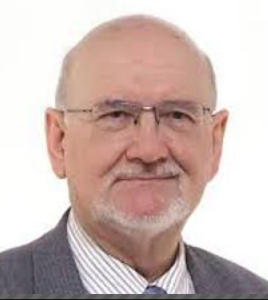
Witold Kinsner is Professor in the Department of Electrical and Computer Engineering, University of Manitoba (UofM), Winnipeg, Canada, and Director of the Cognitive Systems Group. He was a co-founder of the first Microelectronics Centre in Canada and was its Director of Research from 1979 to 1987. He is a Co-founding Member of the International Institute of Cognitive Informatics and Cognitive Computing (ICIC), Calgary, and the Canadian Engineering Education Association (CEEA). Since 1971, he has been very active at all the IEEE levels, including IEEE International, Region 7 (IEEE Canada), Society, Council, Section, Chapter, and Student Branch. He has organized many conferences and has been on numerous editorial boards of journals and magazines. He is a member of 10 IEEE Societies and many committees. In 2013, Dr Kinsner was elected IEEE Canada President Elect 2014-15 and IEEE R7 Director/Delegate Elect 2014-15. He was IEEE Canada President 2016-17 and IEEE R7 Director/Delegate 2016-17, and he is now Past President 2018-2019. In 2017, he was elected IEEE Vice President of the IEEE Educational Activities for 2018 and was re-elected for 2019.
His current research focuses on entropy-based mono-scale, multi-scale, and poly-scale complexity metrics for cognitive systems. He has been involved in research on robust algorithms and software/hardware computing engines for real-time multimedia, using wavelets, fractals, chaos, emergent computation, genetic algorithms, rough sets, fuzzy logic, higher-order statistics, neural networks, and deep learning. He has authored and coauthored over 780 publications in the above research areas, as well as supervised over 76 Master’s and Doctorate graduate students, over 210 undergraduate final-year thesis/capstone project students and mentored over 35 summer research students. He has received a number of awards. Since 2010, he has been the University Advisor for the Canadian Satellite Design Challenge (CSDC) University of Manitoba team consisting of over 100 students from 16 departments and 50 advisors from the academic, aerospace, industrial, business, and military sectors. In 2018, the fourth implementation of the University of Manitoba Space Applications and Technology Society (UMSATS)s satellite, TSat4, has won the CSDC competition.
Microgrids Control and Power Quality Improvement
Presenter: Yunwei (Ryan) Li and Farzam Nejabatkhah
Synopsis
Today, conventional power systems are evolving into modern smart grids, where interconnected microgrids may dominate the distribution system with high penetration of renewable energies and storage elements. The hybrid AC/DC systems with DC and AC sources/loads are considered to be the most likely future distribution or even transmission structures. In such hybrid AC/DC microgrids, power quality control is one of the most critical operation aspects, and the high penetration level of power electronics interfacing converters creates great potential to control the power quality.
This tutorial focuses on the power quality control in hybrid AC/DC microgrids. It includes both converter level control design and system level management and coordination. It will cover four main topics: i) overview of hybrid AC/DC microgrids; ii) power management strategies and grid support control in hybrid microgrids; iii) control strategies for single-phase and three-phase interfacing converters to compensate for the unbalanced voltage in hybrid AC/DC microgrids; and iv) harmonic compensation in hybrid microgrids.
The tutorial will be suitable for engineers and researchers who are working on microgrids and grid interfacing converters, as well as those who wants to learn more about smart converters controls and hybrid AC/DC microgrids operations.
Bios:
Yunwei (Ryan) Li: received the Ph.D. degree from Nanyang Technological University, Singapore, in 2006. In 2005, Dr. Li was a Visiting Scholar with Aalborg University, Denmark. From 2006 to 2007, he was a Postdoctoral Research Fellow at Ryerson University, Canada. In 2007, he also worked at Rockwell Automation Canada before he joined University of Alberta, Canada in the same year. Since then, Dr. Li has been with University of Alberta, where he is a Professor now. His research interests include distributed generation, microgrid, renewable energy, high power converters and electric motor drives.
Dr. Li serves as Editor in Chief for IEEE Transactions on Power Electronics Letters. Prior to that, he was Associate Editor for IEEE Transactions on Power Electronics, IEEE Transactions on Industrial Electronics, IEEE Transactions on Smart Grid, and IEEE Journal of Emerging and Selected Topics in Power Electronics. Dr. Li received the Richard M. Bass Outstanding Young Power Electronics Engineer Award from IEEE Power Electronics Society in 2013. He received three prize paper awards from technical journals and conferences in the past 5 years.
Dr. Li is among the first few researchers on microgrid work in early 2000, and his research on microgrid, power quality control, and virtual impedance control has led to over 100 IEEE Transaction papers. His work is well cited with over 10000 citations (google scholar).
Farzam Nejabatkhah (S’09-M’2017) received the B.Sc. (Hons.) and M.Sc. (Hons.) degrees in electrical engineering from the University of Tabriz, Tabriz, Iran, in 2009 and 2011, and the Ph.D. degree from the University of Alberta, Edmonton, Canada, in 2017. Since then, he has been a Postdoctoral Research Fellow at the University of Alberta, Canada. Also, since January 2019, he is a sessional instructor at the University of Alberta. His research interests include hybrid AC/DC microgrids, smart grids, power quality, renewable generations and energy storages, and power converter topologies and control.
Dr. Nejabatkhah received the Alberta Innovates Graduate Student Scholarship for three years from 2014 to 2017 from Alberta Government & University of Alberta, and the Most Cited Paper Award in 2016 from MPCE journal. He is a reviewer of several IEEE Transactions and conferences and awarded the Best Reviewer Award of IEEE Transactions on Smart Grid in 2016. Since 2019, he serves as a committee member of the Awards and Recognition Committee (ARC) of IEEE Northern Canada Section and the ARC of IEEE Canada.
Dr. Nejabatkhah has worked on microgrids, power quality control, and interfacing power electronic converters for more than eight years, and he has published his research results in 25 IEEE Transaction journals and international conferences.
Standards Association and Emerging Technologies
Presenter: Lloyd Green
Tutorial Summary
-
- Overview of the IEEE and the IEEE-SA
- Description of the engagement processes for industry with IEEE
- Examples of IEEE standards activities
- New emerging technology area of focus for the IEEE and the role IEEE plays. Technologies include IoT, Blockchain and autonomous and intelligent systems
- Overview of the Global Initiative on Ethics of Autonomous and Intelligent systems
- Example of how standards are put into practice
Brief Description of the materials
The tutorial will cover three main areas – The first will discuss the IEEE and its role in industry. The different engagement models will be presented and discussed. The second area will focus IEEE’s work in Autonomous and Intelligent systems and the ethical considerations of such work. The last area will provide a case study of how standards are at work advancing technology for humanity.
The tutorial is expected to last 2.5 to 3 hours and will be delivered by Lloyd Green. The format will be slides presented via a projection device. If applicable, the slides will be made available in PDF to participants requiring a copy of the presentations.
Bio:
Lloyd Green is the Strategic Market Engagement and Operations Director. In this role Lloyd is responsible for managing strategic industry-orientated partnerships, while developing engaging approaches to foster industry participation in long-term standardization initiatives. Previously, Lloyd was Director of Engagement Marketing and Creative Community Services for the IEEE responsible for defining, delivering and evangelizing IEEE-SA digital and marketing services to drive growth, innovation, and brand recognition. He brings a wealth of technology related experience in the areas of strategic partnerships, marketing, corporate communications, market intelligence, business development and product marketing.
Lloyd has been a frequent speaker for the IEEE Standards Association (IEEE-SA) on emerging technologies including IoT and MEMS/Wearables. Previously, Lloyd was Director of Marketing and Customer Support at Juniper Networks where he was responsible for Juniper’s line of highly accurate end-to-end timing and synchronization solutions, which addressed the mobile backhaul and femtocell market. Prior to Juniper Networks, Lloyd held technical, marketing and business development roles at Altamar Networks, Network Equipment Technologies (N.E.T) and British Telecom International (BTI). Lloyd holds a B.S. in Telecommunications from the South East London Technical College.


